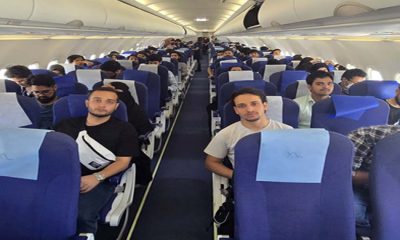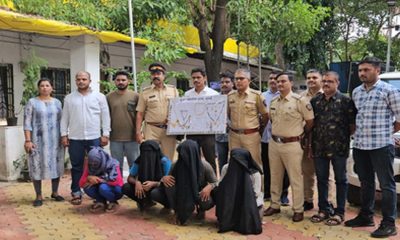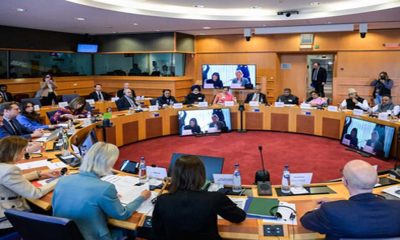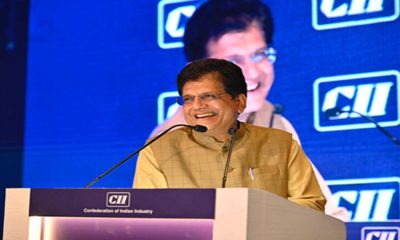International News
PM Modi Arrives In Brunei Darussalam On Historic 2-Day Visit

Bandar Seri Begawan (Brunei): Prime Minister Narendra Modi arrived at the Bandar Seri Begawan Airport Tuesday afternoon as he began a two-day visit to Brunei Darussalam – the first ever bilateral trip by an Indian PM to the southeast Asian nation – at the invitation of Sultan Haji Hassanal Bolkiah.
“As we celebrate the 40 years of our diplomatic relations, I look forward to my meetings with His Majesty Sultan Haji Hassanal Bolkiah and other esteemed members of the Royal family to advance our historical relationship to new heights,” said PM Modi in his departure statement ahead of his visit to Brunei Darussalam and Singapore.
About PM Modi’s Visit To Brunei
During his visit, the Prime Minister will engage in bilateral discussions focusing on exploring new areas for cooperation in multiple areas like defence, trade and investment, energy, space technology, health, capacity building, culture, and vibrant people-to-people exchanges.
Last month, External Affairs Minister (EAM) S. Jaishankar met Erywan Pehin Yusof, Foreign Minister of Brunei on the sidelines of ASEAN meetings in Vientiane and jointly launched the logo celebrating 40 years of diplomatic relations between the two countries.
About All The Meet Of PM Modi & Sultan Of Brunei
Prime Minister Narendra Modi and the Brunei Sultan met for the first time on the sidelines of the 25th ASEAN Summit at Nay Pyi Taw in November 2014. They met once again during the 2017 East Asia Summit held in Manila. In January 2018, the Brunei Sultan, along with the 10 ASEAN Heads of State and Government, visited India for the ASEAN-India Commemorative Summit. The leaders were also ‘Guests of Honour’ at India’s 69th Republic Day celebrations on January 26, 2018. In 2013, then Prime Minister Manmohan Singh visited Brunei Darussalam to participate in the 11th ASEAN-India Summit and the 8th EAS Summit.
Crowned as the 29th Sultan and Yang Di-Pertuan of Brunei Darussalam in August 1968, Sultan Haji Hassanal Bolkiah undertook his first State Visit to India in September 1992. His second State Visit to India came in May 2008.
MEA On Brunei Darussalam Govt’s Support To India’s ‘Look East’ & ‘Act East’
According to the Ministry of External Affairs (MEA), Brunei Darussalam government has been supportive of India’s ‘Look East’ and ‘Act East’ policies for expansion and deepening of cooperation with ASEAN.
“Brunei is an important partner for India’s Act East Policy and our vision for the Indo-Pacific, and as we mark a decade of our ‘Act East’ Policy this year, the visit assumes additional significance. Brunei has been our country coordinator in ASEAN from 2012 to 2015 and played a key role in our further engagements with ASEAN and continues to do so today,” Jaideep Mazumdar, MEA Secretary (East), said ahead of the PM’s landmark visit.
Indian naval and coast guard ships have also regularly visited Brunei and two Indian defence companies – Bharat Electronics Ltd and MKU Limited – participated in the Defence Industry Exposition organised by Brunei Armed Forces in June 2024 for the first time. Sultan Haji Hassanal Bolkiah and Crown Prince Al-Muhtadee Billah visited the Indian stalls during the expo and appreciated the Indian companies’ participation.
There are currently around 14,500 Indians living in Brunei Darussalam out of the total population of about 450,500 with more than half of the Indian expatriates being semi and unskilled workers, who work in oil and gas industries construction, retail businesses, etc. There is also a substantial number of Indian doctors and teachers working in Brunei.
About PM Modi’s Visit To Singapore
After Brunei, PM Modi will travel to Singapore – a country with which India is exploring enhanced cooperation in digital, skill development, sustainability, healthcare, connectivity, and advanced manufacturing areas.
In his departure statement on Tuesday, PM Modi said that he is looking forward to meeting Singapore President Tharman Shanmugaratnam, Prime Minister Lawrence Wong, Senior Minister Lee Hsien Loong, and Emeritus Senior Minister Goh Chok Tong besides the leaders of Singapore’s vibrant business community.
“I look forward to my discussions to deepen our Strategic Partnership with Singapore, particularly in new and emerging areas of advanced manufacturing, digitalization, and sustainable development. Both countries are important partners in our Act East Policy and the Indo-Pacific Vision. I am confident that my visits would further strengthen our partnership with Brunei, Singapore, and the larger ASEAN region,” said Prime Minister Modi.
About The 2nd India-Singapore Ministerial Roundtable Held In Singapore
Last week, External Affairs Minister (EAM) S. Jaishankar, Finance Minister Nirmala Sitharaman, Commerce and Industry Minister Piyush Goyal and Railways Minister Ashwini Vaishnaw led the Indian delegation at the second India-Singapore Ministerial Roundtable (ISMR) held in Singapore on Monday. During their visit, the Indian ministerial delegation also jointly called on Singapore Prime Minister and Minister for Finance Lawrence Wong who had led the Singapore delegation for the first ISMR held in New Delhi in September 2022.
“Glad that progress has been made on several fronts since our last meeting. And new ideas for cooperation are being pursued, including in advanced manufacturing and connectivity. These initiatives will pave the way for closer strategic cooperation and partnership between India and Singapore,” the Singapore PM said after his meeting with the visiting Indian ministers on Monday.
International News
Iran warns it will target Israel’s ‘secret nuclear sites’ if attacked
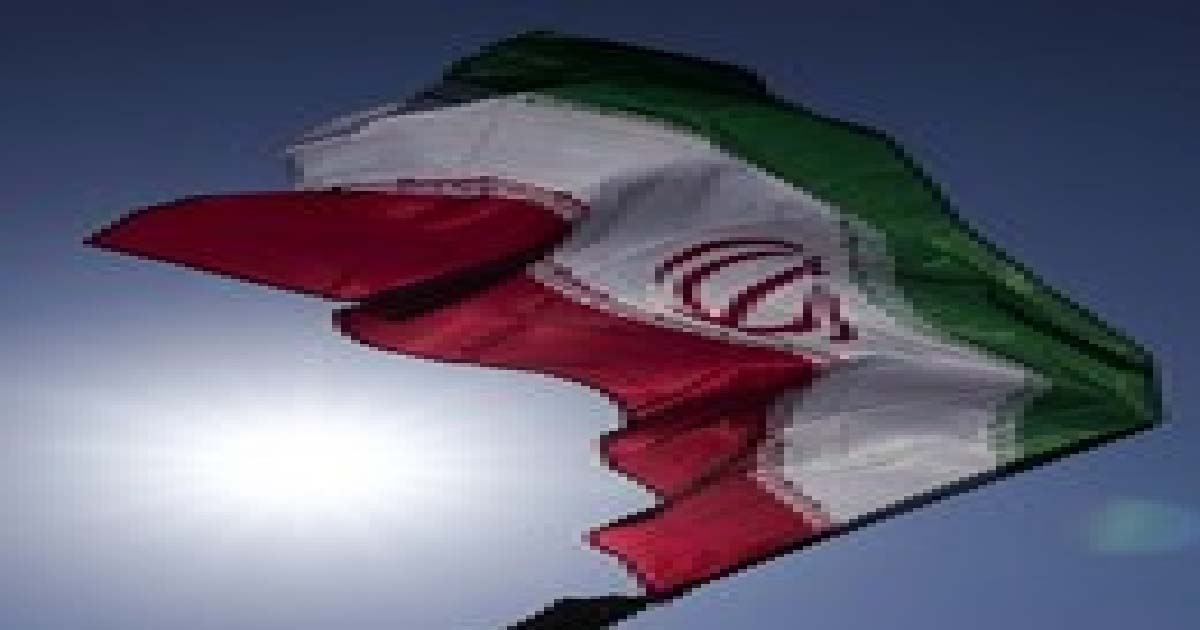
Tehran, June 10: Iran’s top security body warned that its armed forces would immediately target Israel’s “secret nuclear facilities” if the Islamic Republic comes under military attack, following claims it has obtained “sensitive Israeli intelligence.”
The Supreme National Security Council (SNSC) issued the statement days after Intelligence Minister Esmaeil Khatib said Iran had acquired a “significant cache” of Israeli documents through intelligence operations, Xinhua news agency reported.
According to the council, months of intelligence gathering had enabled Iran’s armed forces to identify high-value Israeli targets for potential retaliatory strikes, should Israel initiate military action against Iranian interests.
“This forms part of a broader strategic initiative aimed at countering disinformation by hostile actors and reinforcing Iran’s deterrent capabilities,” the SNSC said.
Tehran’s access to Israeli intelligence would allow it to swiftly target “concealed nuclear sites” in the event of an Israeli strike on Iranian nuclear infrastructure, the council said, adding that the information also supports proportionate retaliation against attacks on Iran’s economic or military assets.
Israel is believed by many to possess nuclear weapons, though it has never officially confirmed or denied this, maintaining a longstanding policy of strategic ambiguity.
International News
‘True spirit of friendship’ between India and Iran hailed after rescue of kidnapped citizens
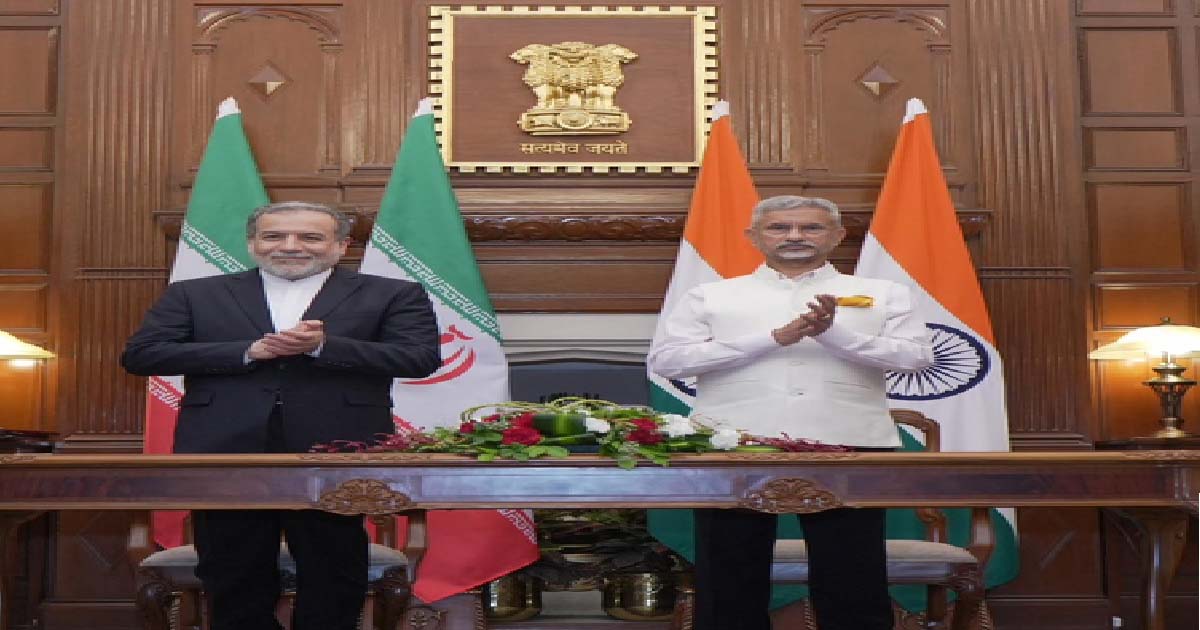
Tehran, June 4: India on Wednesday thanked the Iranian government for its swift and effective efforts in securing the release of three kidnapped Indian citizens, emphasising that the timely support reflects “true spirit of friendship” that exists between the two nations.
“The three kidnapped Indian citizens have been safely rescued and are now under the care of the Embassy of India, which is facilitating their early repatriation. We sincerely thank the Government of Iran for their swift and effective efforts in securing their release,” the Embassy of India in Iran posted on X.
“Your support reflects the true spirit of friendship between two nations,” it added.
Late Tuesday, the Embassy of Iran in India confirmed that Tehran police had freed the missing individuals, citing a report from Media.
“Three missing Indian citizens freed by Tehran police. Local media in Iran say police have found and released three Indian men who had gone missing in Iran,” the Iranian Embassy stated.
The trio was reportedly rescued following a police operation targetting the hostage-takers in Varamin in south Tehran, Media reported.
According to reports, the three Indian men – all hailing from Punjab and identified as Jaspal Singh, Hushanpreet Singh, and Amritpal Singh – had disappeared shortly after landing in Tehran on May 1.
They were reportedly on their way to Australia after being promised lucrative jobs by a local travel company.
The Indian Embassy in Tehran had issued a statement on May 28, following an approach by the family members of the missing men, who expressed serious concern over their relatives’ sudden disappearance.
The statement read, “Family members of three Indian citizens have informed the Embassy of India that their relatives are missing after having travelled to Iran. The Embassy has strongly taken up this matter with the Iranian authorities and requested that the missing Indians should be urgently traced and their safety should be ensured. We are also keeping the family members regularly updated on the efforts being made by the Embassy.”
Reports also suggested that the families received ransom demands of Rs one crore from unknown individuals, with the threatening calls originating from Pakistani phone numbers.
The details raised serious alarm, prompting swift diplomatic engagement from both sides.
The Iranian Embassy in India, responding to the developments, stated that the case was being closely followed by the Consular Affairs Department of Iran’s Ministry of Foreign Affairs.
The Embassy also issued a warning to Indian citizens, advising them “not to be deceived by the promises of unauthorised individuals or illegal Indian agencies offering travel to other countries.”
India has also previously issued travel advisories for its nationals travelling to Iran, urging them to exercise caution, remain in contact with the Indian Embassy in Tehran and consulates, and avoid engagement with unverified travel agents or intermediaries.
International News
Indian Hajj mission deploys assisting teams for pilgrims’ Mina journey
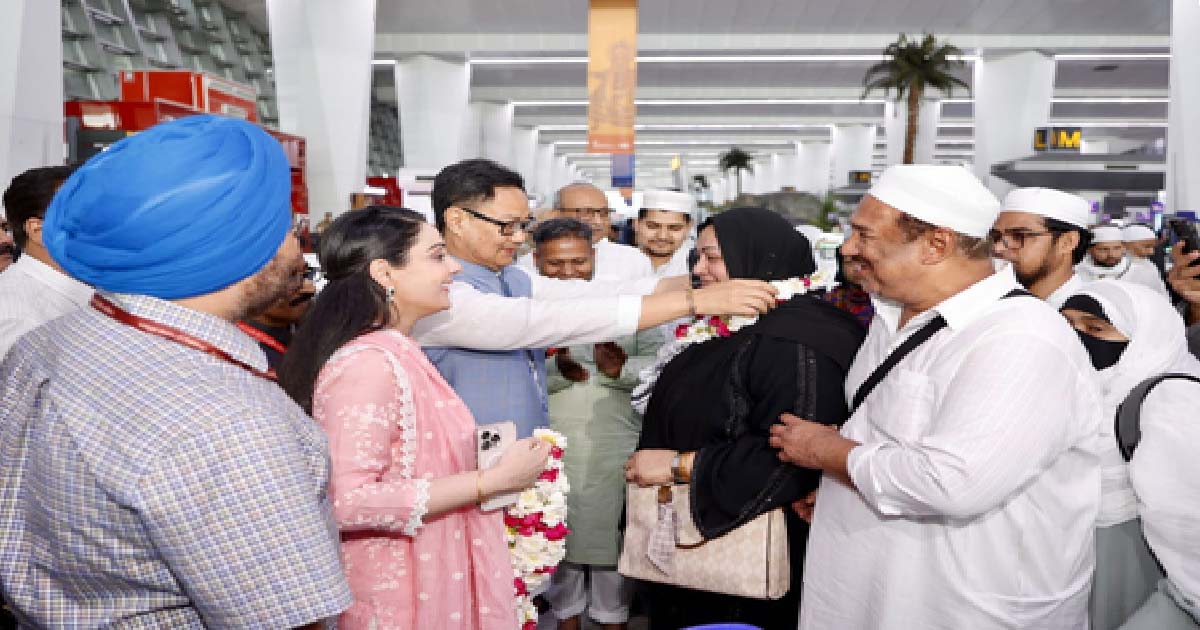
Riyadh, June 4: Indian Hajj pilgrims are assisted by ‘Team India’ officials as the movement to Mina from Mecca begins, marking the start of the Five-Day Core Hajj Period in Saudi Arabia.
The team, in coordination with Saudi Authorities, is facilitating a smooth journey for all the pilgrims, underscoring India’s commitment to ensuring the well-being of all its citizens.
“Movement of Hajj pilgrims to Mina started today! ‘Team India’ officials are on duty to facilitate the movement of Indian Hajj pilgrims to smoothly avail the transport services to reach their designated camps in Mina,” the Indian Hajj Pilgrims office posted on X on Wednesday.
Indian officials were assisting vulnerable Hajj pilgrims in catching buses to Mina.
Union Minister of Minority Affairs Kiren Rijiju extended wishes to the Indian pilgrims performing Hajj and ensuring assistance to them as the journey to Mina begins.
“My heartfelt wishes to all Indian pilgrims performing Hajj this year. Our Hajj Mission, led by officials & teams, is fully prepared in coordination with Saudi authorities. Admin and medical teams will be present in all Mina camps. For any assistance, use the Hajj Suvidha App or toll-free numbers. May your Hajj be smooth, blessed and spiritually fulfilling,” Rijiju posted on X.
Earlier on Monday, India’s Ambassador to Saudi Arabia, Suhel Ajaz Khan, addressed the Indian Hajj pilgrims ahead of the core rituals.
He extended his best wishes and assured them of full support, highlighting the presence of administrative and medical deputationists to assist pilgrims throughout the journey.
Meanwhile, India’s Consul General of Jeddah Fahad Ahmed Khan Suri chaired a briefing on arrangements for medical care and assistance in the Mashaer Region (Tent city of Mina and plains of Muzdalifah & Arafat) for Indian Hajj Pilgrims.
The session was attended by the Indian Consul (Hajj), Muhammed Abdul Jaleel, and officials, doctors and nurses from ‘Team India’ deployed in Hajj 2025.
Last week, Indians who embarked on Hajj pilgrimage appreciated the arrangements and quality of facilities offered by the Indian government to ensure a smooth and seamless journey for all in Saudi Arabia.
“Indian pilgrims who went for Hajj 2025 through the Hajj Committee of India are very happy with the management of the Government of India and the facilities being provided there. It is the constant endeavour of the Ministry of Minority Affairs to ensure a comfortable and dignified journey for every Hajj pilgrim,” the Ministry of Minority Affairs posted on X.
Additionally, Union Minister of State for Minority Affairs, George Kurian also highlighted the dedicated efforts of the Centre in ensuring a smooth and successful Hajj for pilgrims.
-

 Crime3 years ago
Crime3 years agoClass 10 student jumps to death in Jaipur
-

 Maharashtra9 months ago
Maharashtra9 months agoMumbai Local Train Update: Central Railway’s New Timetable Comes Into Effect; Check Full List Of Revised Timings & Stations
-

 Maharashtra9 months ago
Maharashtra9 months agoMumbai To Go Toll-Free Tonight! Maharashtra Govt Announces Complete Toll Waiver For Light Motor Vehicles At All 5 Entry Points Of City
-

 Maharashtra9 months ago
Maharashtra9 months agoFalse photo of Imtiaz Jaleel’s rally, exposing the fooling conspiracy
-

 Crime9 months ago
Crime9 months agoBaba Siddique Murder: Mumbai Police Unable To Get Lawrence Bishnoi Custody Due To Home Ministry Order, Says Report
-

 National News9 months ago
National News9 months agoMinistry of Railways rolls out Special Drive 4.0 with focus on digitisation, cleanliness, inclusiveness and grievance redressal
-

 Maharashtra8 months ago
Maharashtra8 months agoMaharashtra Elections 2024: Mumbai Metro & BEST Services Extended Till Midnight On Voting Day
-

 National News10 months ago
National News10 months agoJ&K: 4 Jawans Killed, 28 Injured After Bus Carrying BSF Personnel For Poll Duty Falls Into Gorge In Budgam; Terrifying Visuals Surface





